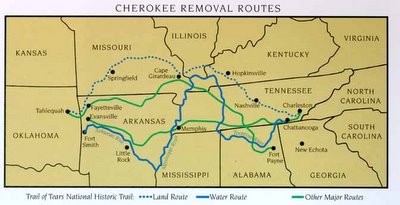Gas Prices Up 133% in Northeastern Arkansas
With gas prices on the rise all over the country, I asked the U.S. House Committee on Government Reform to conduct a study on the impact of rising gas prices in northeastern Arkansas. The study found: The study found that: - Average gasoline prices in Northeastern Arkansas have increased for four straight years, from an average of $1.22 in 2001 to $2.84 thus far in 2006. This is a 133% price increase, which is almost ten times the rate of inflation.
- The rising cost of gasoline requires two-car families in Arkansas to pay an average of $1,970 more in 2006 than they did in 2001. This will cost Arkansas drivers about $2 billion more this year than in 2001, or $167 million on average per month.
- In Jonesboro, high gas prices will cost all drivers an extra $27 million this year, and each family about $1,500 more than in 2001. In West Memphis, high gas prices will cost all drivers an extra $24 million this year, and each family about $1,840 than in 2001.
Click here to read the full press release.
Berry Introduces Bills to Ease Fertilizer Prices
I introduced two pieces of legislation today to suspend the import duties on urea and ammonium nitrate fertilizers and lower the price of fertilizer for America's farmers. Experts estimate fertilizer prices could drop by as much as 50% if the International Trade Commission removed existing tariffs and allowed other countries to export urea and ammonium nitrate fertilizers to the United States. The demand for fertilizer here in the United States far exceeds what we are able to supply through domestic production. Instead of penalizing America's farmers, it is time to open our market to other countries capable of producing fertilizer at a much lower price. This will not only provide financial relief for farmers all across rural America, put protect the long-term viability of our domestic food supply. Click here to read the full press release.
House Votes to Protect Right to Bear Arms
Today the U.S. House of Representatives passed H.R. 5013, The Disaster Recovery Personal Protection Act which would prohibit federal, state, and local authorities from confiscating lawfully-owned firearms during states of emergency. As a cosponsor of this measure, I believe this is an important step toward protecting your second amendment right to bear arms. After Hurricane Katrina, law enforcement agents from the federal government and several states confiscated guns from law-abiding New Orleans residents. The National Rifle Association filed a lawsuit in federal court against these agencies and won a temporary restraining order ending the illegal gun confiscations. By enacting the Disaster Recovery Personal Protection Act of 2006, we can ensure that this never happens again during emergency situations. "A well regulated militia being necessary to the security of a free State, the right of the People to keep and bear arms shall not be infringed."
- Second Amendment, U.S. Constitution
Arkansas National Guard's 875th Engineer Battalion Deployment
This weekend, the 875th Engineer Battalion of the Arkansas National Guard will be leaving Northeast Arkansas in order to prepare for deployment to Iraq. These 405 soldiers will be part of the critical rebuilding effort in Iraq which includes the reconstruction of Iraqi schools, hospitals, irrigation and sewage systems, creation of new recreational projects for children, and stabilization of neighborhoods overcome with violence. We wish them a safe journey and will keep them and their families in our thoughts and prayers. For those who have a loved one serving in the military, here are a list of important phone numbers:  To the soldiers: I am grateful for your leadership and courage and pray for each of you as you embark on a journey that will strengthen this country.
Berry Unveils Report Showing 7 Million Seniors Will Hit Medicare Doughnut Hole
 Today I joined several of my colleagues and the leading senior advocacy groups Campaign for America's Future and American's United to unveil a new report on the dangers of the Medicare Prescription Drug doughnut hole. The report shows that nearly 7 million seniors will hit the doughnut hole this year alone, forcing them to pay as much as $3,600 out-of-pocket for their prescription drugs. This will not only force seniors to scale back on critical medications, but put additional pressure on our pharmacists who have already paid out of their own pockets to provide prescription drugs for those who either lost coverage or fell through the cracks of the Administration's disastrous benefit. We can solve this problem and completely eliminate the need for the doughnut hole if we just pass my bill the Medicare Drug Savings and Choice Act. This measure would allow the Secretary to negotiate for lower prices just like the VA does and save the government at least $40 billion a year. We know how to do this. We just need leaders in office who are willing to take this country in a new direction. There is no reason why we should let the pharmaceutical and insurance companies run this health care benefit instead of a government agency we have come to know and trust. I encourage you to CLICK HERE TO READ THE FULL REPORT posted on Campaign for Americas Future's website. Feel free to also CLICK HERE TO READ MY PRESS RELEASE from today's press conference.
Berry's Trail of Tears Bill Passes House
Our state has good reason to celebrate. The U.S. House of Representatives passed my Trail of Tears Documentation Act last evening - moving us one step closer to completing the National Historic Trail of Tears which runs through eight states including Arkansas. When Congress authorized the trail in 1987, it didn't have enough evidence to include all the routes traveled by the Cherokee in their massive migration west. Now we have identified two other major routes that pass through our state. These routes are shown in green below. The southern route or the Bell Route, traveled by John Bell's Treaty Party across Tennessee and Arkansas, heads up the Arkansas River through Little Rock and Fort Smith. The northern route or the Benge Route, used by Cherokee leader John Benge's detachment, begins in Ft. Payne, Alabama, passing through Tennessee, Kentucky, Missouri, and northern Arkansas, before arriving in Oklahoma. My bill would ask the Secretary of the Interior to study these routes and incorporate them into the national landmark.  Click here to read the full press release. Click here to read the full press release.
Medicare to Raise Premiums Next Year
The Administration projected today that Medicare Part B will have to raise monthly premiums for the elderly from $88.50 to at least $98.40. This represents an 11.2 percent increase over current rates. Medicare Part B provides traditional physician services and outpatient care to beneficiaries. Although the government covers premiums for a small portion of low-income beneficiaries, the majority of the 43 million beneficiaries would bear the burden of this increase. Karen Sloan, AARP's national coordinator for health issues reacted to this news:
"We're going on several years of repeated double-digit increases, and it's also roughly three times the rate of the Social Security (cost-of-living) increase. It puts a real squeeze, particularly on moderate-income seniors."
Bush Misrepresents Budget Deficit
Yesterday the Bush Administration projected a $296 billion budget deficit for Fiscal 2006, calling it a significant victory for our country. What Bush didn't reveal, is a $296 billion deficit would represent the fourth largest deficit in American history. Even worse, this estimate grossly understates the real size of the budget deficit. The truth is, the deficit is actually much larger because the Administration and Congressional Republicans are spending every single penny of the Social Security surplus, an estimated $180 billion this year. Even if OMB’s $296 billion estimate turns out to be correct, the real budget deficit would actually reach about $180 billion higher – or some $476 billion.
|



